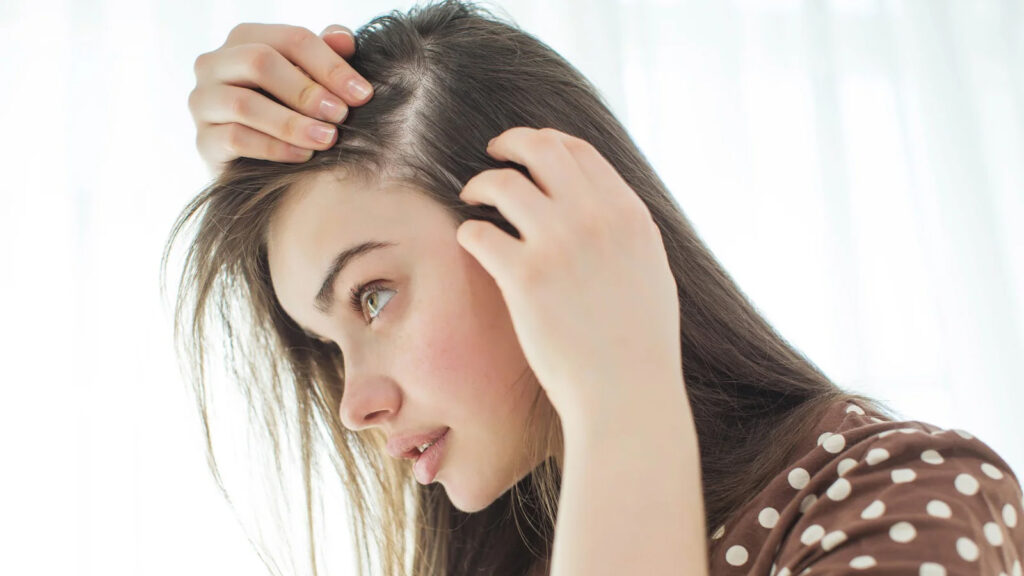Beauty Blog
Is Sea Moss Good for Hair? Learn Its Benefits and Usage Now
Sea moss has become a prominent topic in the health and beauty world, known for its benefits ranging from skin rejuvenation to gut health. If you follow health and beauty influencers on social media, you’ve likely wondered, “Is sea moss good for my hair?”
Packed with a wealth of nutrients, there’s strong reason to believe Sea Moss can support your hair’s health. Many of its impressive benefits are backed by solid research. In this article, we’ll delve into the science behind sea moss and explore how it can help you achieve even more vibrant hair.
Ready to incorporate sea moss into your routine? Let’s explore more of its benefits and usage with Ballyhoo Media.
Is Sea Moss Good for Hair?
Many people claim they’ve experienced hair growth while using sea moss, although individual results can vary. However, some studies suggest that Sea Moss may stimulate hair follicles and promote hair growth.
Sea Moss is rich in Omega-3 fatty acids, zinc, fucoidan, folic acid, and other hair-friendly compounds. It boasts antibacterial, antifungal, and antimicrobial properties, making it beneficial for scalp health. Additionally, it contains antioxidants that protect against UV damage, encourage hair cell regeneration, and help maintain hydration.
Notes:
- Omega-3 Fatty Acids: These promote a healthy scalp by reducing inflammation and providing essential nutrients to hair follicles.
- Zinc: Vital for tissue growth and repair, zinc helps maintain the oil-secreting glands attached to hair follicles.
- Fucoidan: This compound supports cell proliferation, which can enhance hair growth.
- Folic Acid: Essential for producing healthy red blood cells, folic acid improves the supply of nutrients to the scalp.

4 Uses of Sea Moss to Promote Hair Growth
Sea moss offers a variety of benefits for hair health due to its rich nutrient profile. By incorporating this seaweed into your hair care routine, you can reduce the risk of hair damage and achieve healthier-looking locks. Here are four key benefits of using sea moss for your hair:
Shielding Hair from UV Damage
Sea moss contains high levels of fucoidan, an antioxidant known for its protective properties. Studies have shown that fucoidan can help prevent damage caused by UV radiation by reducing inflammation and neutralizing free radicals. This helps keep your hair strong and healthy, even with exposure to the sun.

Hydrating Hair
One of the primary components of sea moss is carrageenan, a gel-like substance made of sugar molecules. Carrageenan binds to water, making it particularly effective in natural hair styling products. When applied to hair, it seals the cuticle and reinforces hair strength. This can be easily washed out with shampoo, preventing buildup common with other ingredients like silicones.
Promoting Natural Hair Growth
Sea moss is rich in fatty acids and folic acid, both crucial for hair growth. Folic acid is responsible for skin growth and can speed up the natural hair growth process when used on the scalp. This helps you achieve longer, healthier hair more quickly.

Improving Scalp Health
Loaded with antioxidants, sea moss effectively supports your overall skin health. It protects skin cells, promotes cell growth and metabolism, and enhances collagen synthesis. It can also help treat scalp conditions like eczema, psoriasis, and dandruff, leading to a healthier scalp environment that fosters better hair growth.
Does Eating Sea Moss Aid Hair Growth?
Yes, consuming sea moss, whether in gel form or raw, can aid in hair growth. When you eat Sea Moss, your body absorbs its nutrients and distributes them to the areas that need them most.
The health and appearance of your hair are significantly influenced by your diet. Incorporating sea moss into a balanced diet can improve your hair, skin, and overall health. The rich nutrient content of sea moss, including vitamins, minerals, and antioxidants, supports hair growth from within, providing the necessary elements for strong and healthy hair.

Nutrients Found in Sea Moss
Is sea moss nutritious? Yes, it is. Sea moss has recently become popular as a supplement to enhance overall health and well-being.
This plant is rich in antioxidants and essential vitamins such as A, C, E, K, and B. With 92 minerals, including iron, zinc, magnesium, and potassium, it’s no surprise that new benefits of sea moss for hair are continually being discovered.
Notes:
- Antioxidants: Help protect hair and skin cells from damage caused by free radicals.
- Vitamin A: Supports the production of sebum, which keeps the scalp moisturized.
- Vitamin C: Aids in collagen production, which strengthens hair.
- Vitamin E: Enhances blood circulation to the scalp, promoting hair growth.
- Vitamin K: Helps in the healing process and maintenance of a healthy scalp.
- B Vitamins: Crucial for hair health, reducing hair loss and promoting new growth.
- Iron: Essential for transporting oxygen to hair follicles, supporting growth.
- Zinc: Plays a vital role in tissue growth and repair, keeping hair follicles healthy.
- Magnesium: Helps prevent calcium buildup on the scalp, which can lead to hair loss.
- Potassium: Balances the pH level of the scalp, reducing hair fall and promoting healthy hair growth.
Incorporating Sea Moss into your diet or hair care routine can provide these essential nutrients, leading to healthier, stronger, and more vibrant hair.
Possible Side Effects of Sea Moss Usage
Sea Moss is a natural compound and generally does not have significant side effects. However, overuse of any substance can be harmful. Here are some potential side effects of Sea Moss:
- Excessive Iodine: Sea Moss contains a high amount of iodine, which can lead to hypothyroidism if consumed in excess.
- Allergic Reactions: It may cause allergies in people with sensitive skin or those allergic to seafood.
- Digestive Issues: Overconsumption may lead to stomach problems, such as nausea or diarrhea.
Notes:
- Moderation: Ensure you consume sea moss in moderation to avoid excessive iodine intake.
- Patch Test: If using sea moss topically, do a patch test to check for any allergic reactions, especially if you have sensitive skin.
- Consultation: It’s advisable to consult with a healthcare provider before adding sea moss to your diet, especially if you have thyroid conditions or seafood allergies.
- Hydration: Drinking plenty of water can help mitigate potential digestive issues caused by sea moss.
By using sea moss responsibly and being mindful of these potential side effects, you can safely enjoy its many health benefits.

Incorporating Sea Moss Into Hair Care Routines
Using sea moss for hair care can vary depending on your preference. You can consume it orally in gel form, make DIY hair masks, or buy shampoos and conditioners containing sea moss.
If you prefer a natural, do-it-yourself approach, here’s how to create a nutrient-rich sea moss mask at home:
Prepare the Sea Moss Gel:
- Take dry Sea Moss and boil it until it forms a gel-like consistency, or use a jar of pre-made Sea Moss gel.
Create the Mask:
- Scoop two to three tablespoons of Sea Moss gel (adjust based on your hair length) and place it in a bowl.
- Add a few drops of your favorite hair oil (such as olive oil, almond oil, or avocado oil) and mix until smooth.
Apply the Mask:
- Apply the mixture to your hair, starting from the scalp and working your way to the ends.
- Leave it on for 20 to 30 minutes, then wash it out with a mild shampoo.
Storage:
- Store the remaining mixture in an airtight jar to keep it fresh. Use the mask a few times a week for the best results.
Notes:
- Consistency: Regular use of the sea moss mask can enhance hair strength and shine.
- Customization: You can customize the mask by adding other beneficial ingredients like honey or aloe vera for added hydration and nourishment.
- Scalp Massage: While applying the mask, gently massage your scalp to improve blood circulation and boost hair growth.
- Natural Products: Opt for mild, natural shampoos to avoid stripping your hair of its natural oils after using the mask.
Conclusion
Overall, is sea moss good for hair? It is filled with nutrients, even. It is an excellent natural option for promoting hair growth and enhancing overall health.
Sea moss is packed with a variety of vitamins and minerals, boasts anti-inflammatory properties, and is rich in collagen and amino acids that help strengthen hair. You can take it as a dietary supplement, use it as a hair treatment in gel form, or add it to your favorite hair products.
Are you thinking about adding sea moss products to your haircare routine tonight? What are your favorite hair products? Do you have any other hair-related questions? Let us know in the comments below.
